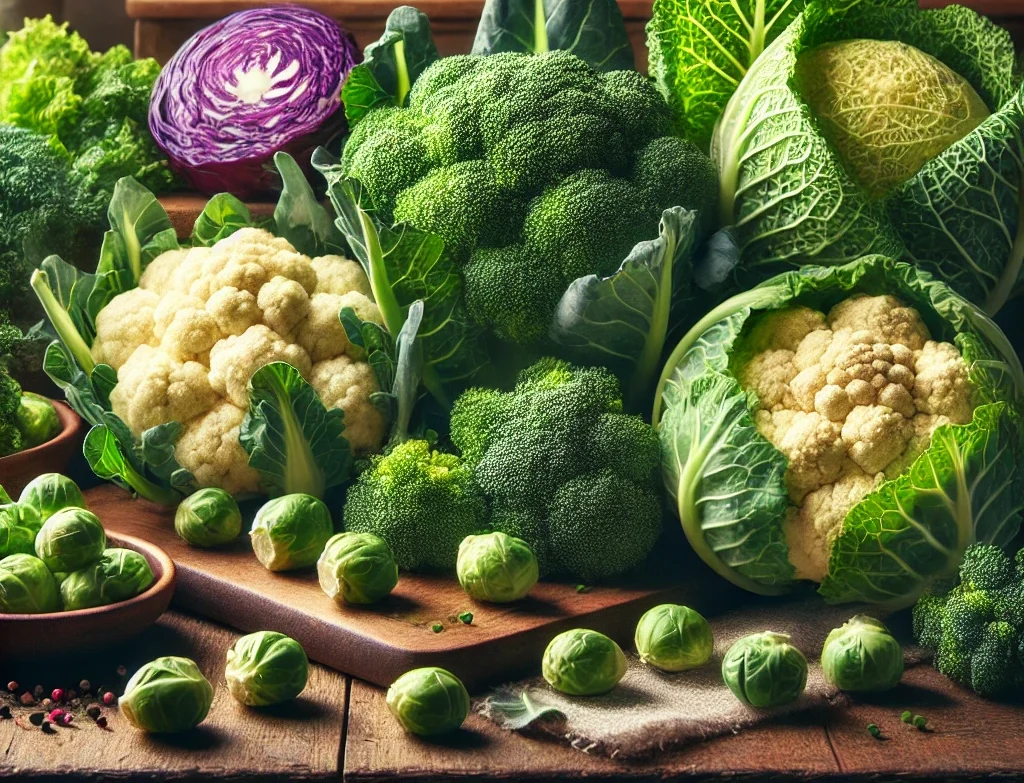Cruciferous vegetables, a family of nutrient-dense plants are prized for their numerous health benefits. These vegetables are packed with essential vitamins, fiber, and unique compounds which contribute to their potential disease-fighting properties. Regular consumption of cruciferous vegetables supports digestion, boosts immunity, and promotes heart health. Their unique composition makes them a standout choice for anyone looking to enhance their diet with nutrient-dense foods.
Broccoli
Broccoli is one of the most popular cruciferous vegetables, rich in vitamin C, vitamin K, and fiber. It also contains sulforaphane, a compound with potent antioxidant and anti-cancer properties. Broccoli supports heart health, boosts immunity, and promotes strong bones.
Cauliflower
Cauliflower is a versatile vegetable loaded with vitamin C, vitamin K, and choline. It helps improve brain function, support digestion, and reduce inflammation. Its mild flavor makes it a great low-carb substitute for rice or mashed potatoes.
Brussels Sprouts
Brussels sprouts are small but mighty, packed with vitamin C, vitamin K, and folate. They contain antioxidants that help fight oxidative stress and promote heart health. Their high fiber content also aids in digestion.
Cabbage
Cabbage is a nutrient-rich vegetable with high levels of vitamin C, fiber, and glucosinolates. It supports immune health, improves digestion, and may reduce the risk of certain cancers. It’s versatile in dishes like coleslaw, stir-fries, and soups.
Kale
Kale is a superfood loaded with vitamins A, C, and K, along with calcium and antioxidants. It supports heart health, strengthens bones, and helps reduce inflammation. Its hearty texture makes it perfect for salads, smoothies, or chips.
Collard Greens
Collard greens are rich in fiber, calcium, and vitamin K. They promote bone health, improve digestion, and help lower cholesterol levels. Their sturdy leaves are often used as a wrap or cooked in savory dishes.
Arugula
Arugula, known for its peppery flavor, is high in calcium, potassium, and antioxidants. It helps detoxify the body, supports bone health, and boosts digestion. Its distinct taste makes it a great addition to salads and sandwiches.
Radishes
Radishes are crunchy and refreshing, rich in vitamin C and antioxidants. They support liver detoxification, improve digestion, and boost immunity. Their spicy flavor adds a delightful kick to salads and snacks.
Turnips
Turnips are a root vegetable in the cruciferous family, offering vitamin C, fiber, and potassium. They aid digestion, support bone health, and boost immunity. Their slightly sweet taste makes them versatile for soups, stews, and roasting.
Bok Choy
Bok choy, a staple in Asian cuisine, is rich in vitamin C, vitamin K, and selenium. It supports immune health, strengthens bones, and promotes thyroid function. Its mild flavor pairs well with stir-fries and soups.
Conclusion
Cruciferous vegetables are a cornerstone of healthy eating, offering a wide range of nutrients and protective compounds that benefit the body in countless ways. From supporting heart health to reducing the risk of chronic diseases, their unique properties make them an essential part of any diet. By incorporating cruciferous vegetables into your diet regularly, you can enjoy their remarkable health benefits while adding variety and nutrition to your meals.
